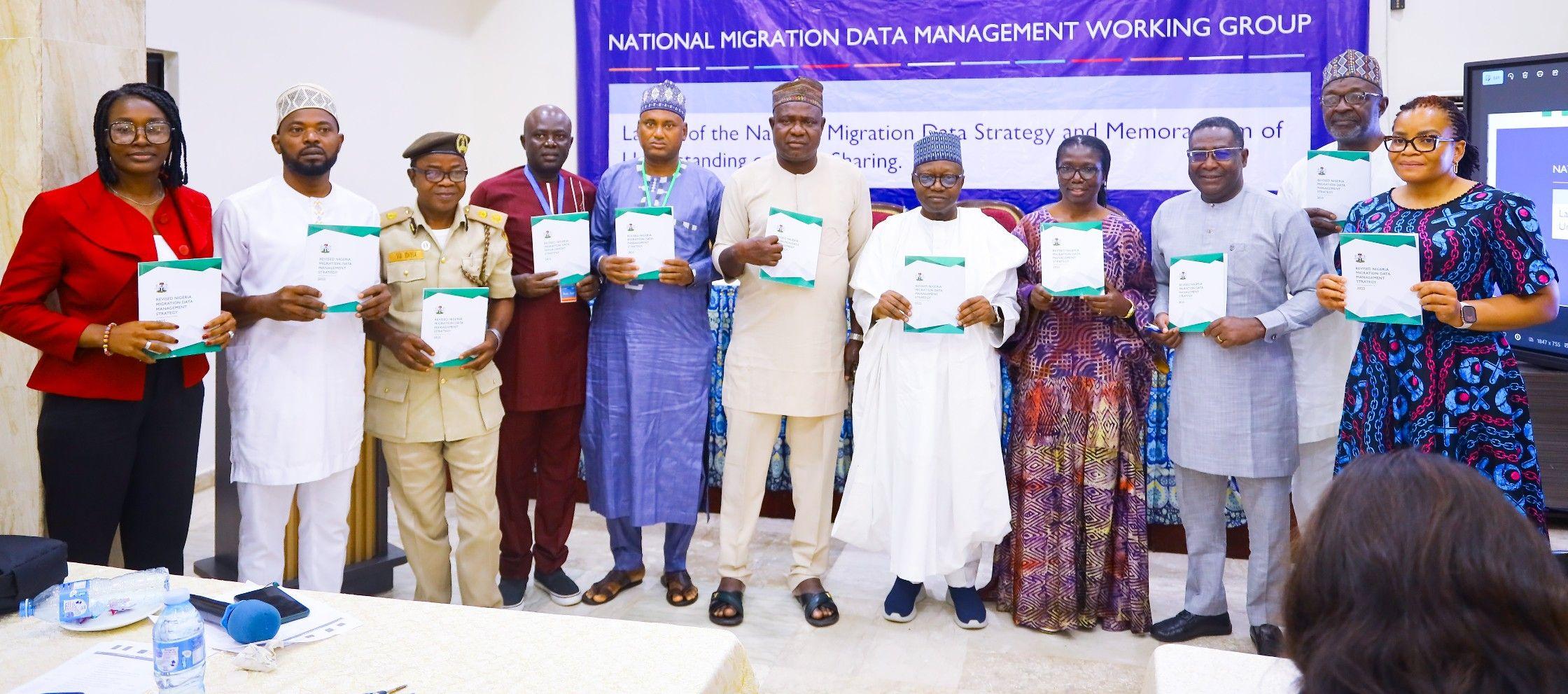
NPC, PARTNERS LAUNCH NATIONAL MIGRATION DATA MANAGEMENT STRATEGY, SIGN DATA-SHARING MOU
October 14, 2025
Admin
The National Population Commission (NPC) and its partners have officially launched the National Migration Data Management Strategy (NMDMS) and signed a Memorandum of Understanding (MoU) on data sharing among key migration data-producing and using agencies in Nigeria.
News
The National Population Commission (NPC) and its partners have officially launched the National Migration Data Management Strategy (NMDMS) and signed a Memorandum of Understanding (MoU) on data sharing among key migration data-producing and using agencies in Nigeria.
The event, held today, 14th October 2025 at the Reiz Intercontinental Hotel in Abuja, marks a major step toward improving how migration data is managed, shared, and utilized across the country.
In his remarks, the Chairman of the NPC, Hon. Nasir Isa Kwarra, described the launch as a “moment of national significance” and a milestone in building a migration governance system that is “inclusive, responsive, and anchored in accurate, reliable, and harmonized data.”
He emphasized that migration is a critical factor shaping Nigeria’s demographic, social, and economic landscape. According to him, when well-managed, migration supports national development, social cohesion, and regional integration. He, however, noted that effective migration management requires “a deliberate, data-driven approach that allows us to anticipate trends, design informed policies, and implement effective programmes that leave no one behind.”
Hon. Kwarra explained that the NMDMS was developed through rigorous technical work, broad stakeholder engagement, and collaboration with partners, particularly the International Organization for Migration (IOM). He said that the initiative falls under the IOM-supported programme titled “Strengthening Fact-Based and Data-Driven Migration Governance and Management in Nigeria,” funded by the Migration Partnership Trust Fund (MPTF).
"The newly launched Strategy provides a roadmap to enhance the quality, availability, accessibility, and use of migration data in Nigeria. It also promotes synergy, coordination, and institutional collaboration, which are essential to effective migration data management," he explained.
A highlight of the event was the signing of a Memorandum of Understanding among key government agencies, committing them to share data and collaborate seamlessly. Hon. Kwarra hailed this as a “bold and commendable step” toward dismantling institutional barriers and fostering transparency and cooperation in migration management.
“Through this MoU, we are laying the foundation for a more integrated and interoperable migration data system that will enhance our capacity for sound policy decisions and help Nigeria meet both national and international obligations,” Hon. Kwarra stated.
The NPC Chairman expressed appreciation to the IOM for its technical support, the Migration Partnership Trust Fund for its financial contribution, and members of the Migration Data Management Working Group for their dedication to the project’s success.
Hon. Kwarra underscored that the launch was not an end in itself but the beginning of a continuous effort to strengthen Nigeria’s migration data ecosystem. He called on all stakeholders, including government institutions, development partners, civil society, and academia to fully commit to implementing the Strategy.
“Let us work together to build a strong, responsive, and human-centered migration data system in Nigeria, one that supports good governance, protects migrants’ rights, and advances our national development priorities,” he urged.
The event was attended by representatives from development partners and migration data-related agencies. Also in attendance were the Director-General of the NPC, Dr Osifo Tellson Ojogun, and a few management staff members.
The launch of the NMDMS and the signing of the data-sharing MoU mark a historic turning point for Nigeria’s migration governance architecture following the revised National Migration Policy 2025, reinforcing the country’s commitment to evidence-based decision-making and sustainable development.
